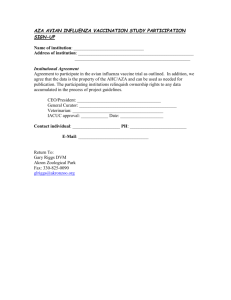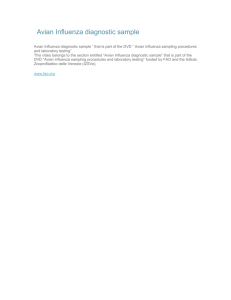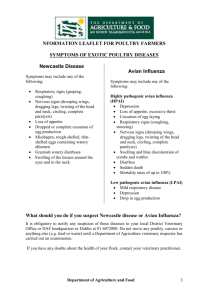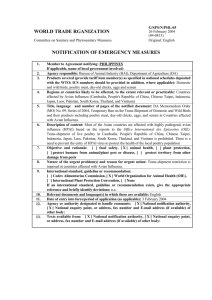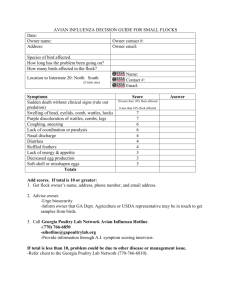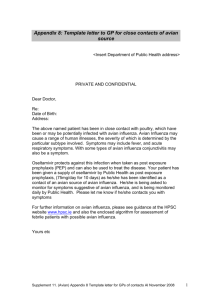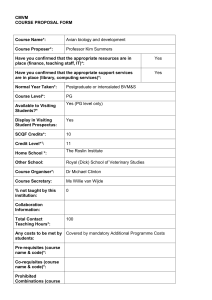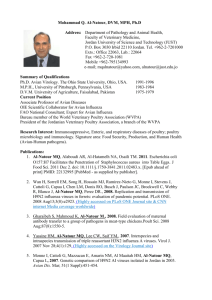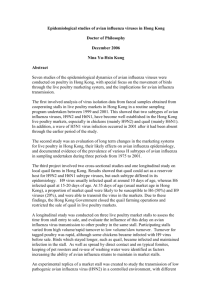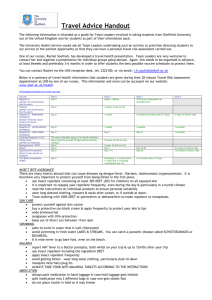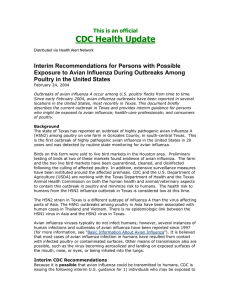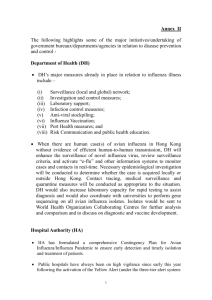A&E and GOPC Triage Assessment for Febrile Patient for
advertisement
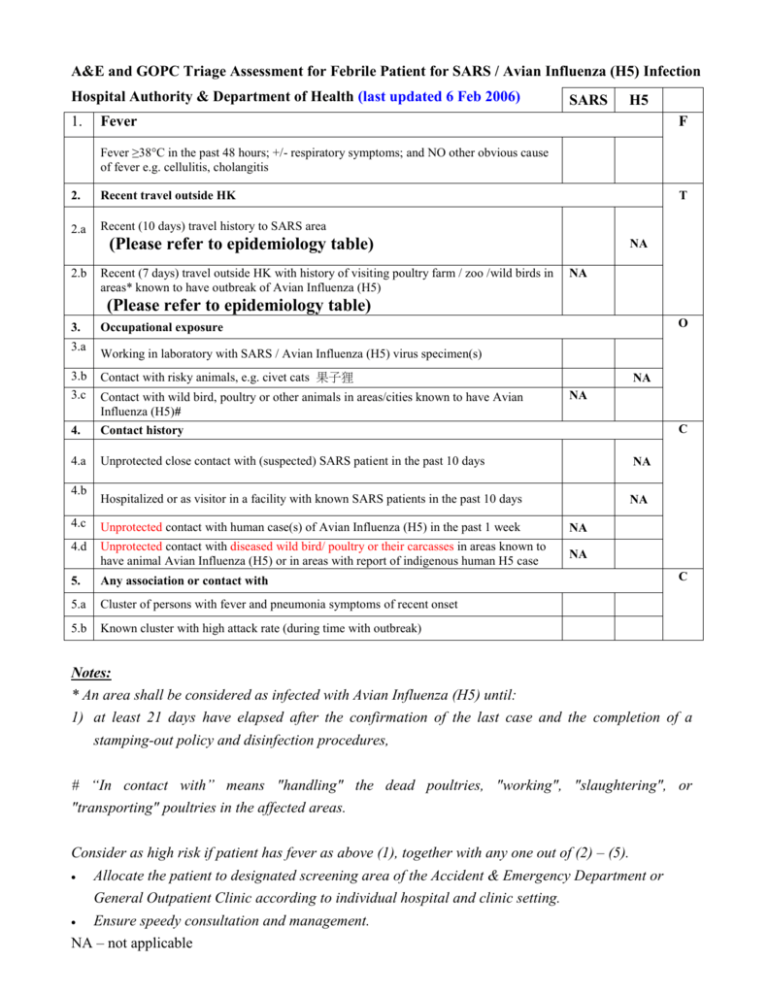
A&E and GOPC Triage Assessment for Febrile Patient for SARS / Avian Influenza (H5) Infection Hospital Authority & Department of Health (last updated 6 Feb 2006) 1. SARS H5 Fever F Fever ≥38°C in the past 48 hours; +/- respiratory symptoms; and NO other obvious cause of fever e.g. cellulitis, cholangitis 2. Recent travel outside HK 2.a Recent (10 days) travel history to SARS area T (Please refer to epidemiology table) 2.b Recent (7 days) travel outside HK with history of visiting poultry farm / zoo /wild birds in areas* known to have outbreak of Avian Influenza (H5) NA NA (Please refer to epidemiology table) 3. 3.a O Occupational exposure Working in laboratory with SARS / Avian Influenza (H5) virus specimen(s) 3.b Contact with risky animals, e.g. civet cats 果子狸 3.c Contact with wild bird, poultry or other animals in areas/cities known to have Avian Influenza (H5)# 4. Contact history 4.a Unprotected close contact with (suspected) SARS patient in the past 10 days NA Hospitalized or as visitor in a facility with known SARS patients in the past 10 days NA 4.b NA NA C 4.c Unprotected contact with human case(s) of Avian Influenza (H5) in the past 1 week NA 4.d Unprotected contact with diseased wild bird/ poultry or their carcasses in areas known to have animal Avian Influenza (H5) or in areas with report of indigenous human H5 case NA 5. Any association or contact with 5.a Cluster of persons with fever and pneumonia symptoms of recent onset 5.b Known cluster with high attack rate (during time with outbreak) C Notes: * An area shall be considered as infected with Avian Influenza (H5) until: 1) at least 21 days have elapsed after the confirmation of the last case and the completion of a stamping-out policy and disinfection procedures, # “In contact with” means "handling" the dead poultries, "working", "slaughtering", or "transporting" poultries in the affected areas. Consider as high risk if patient has fever as above (1), together with any one out of (2) – (5). Allocate the patient to designated screening area of the Accident & Emergency Department or General Outpatient Clinic according to individual hospital and clinic setting. Ensure speedy consultation and management. NA – not applicable
